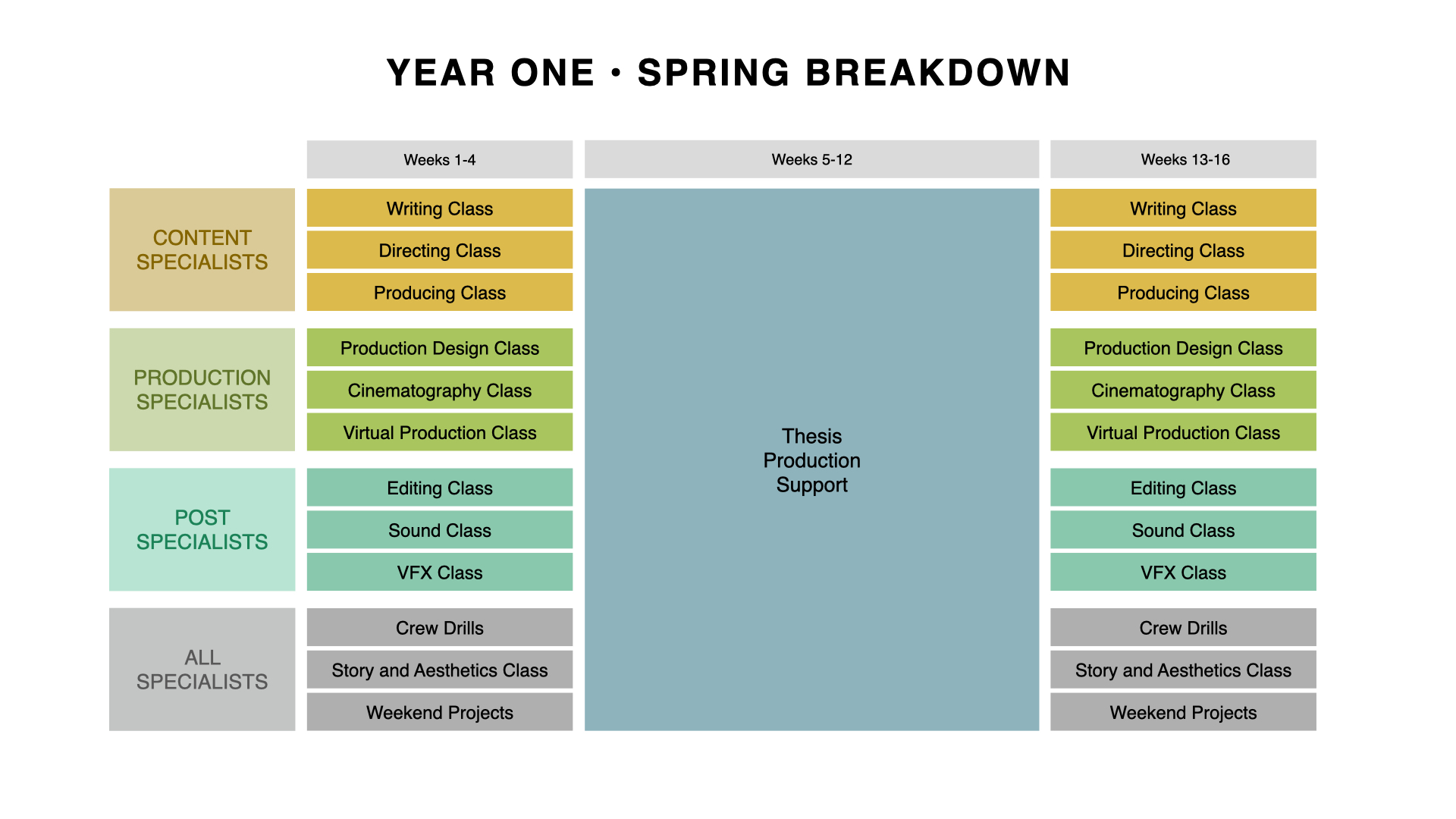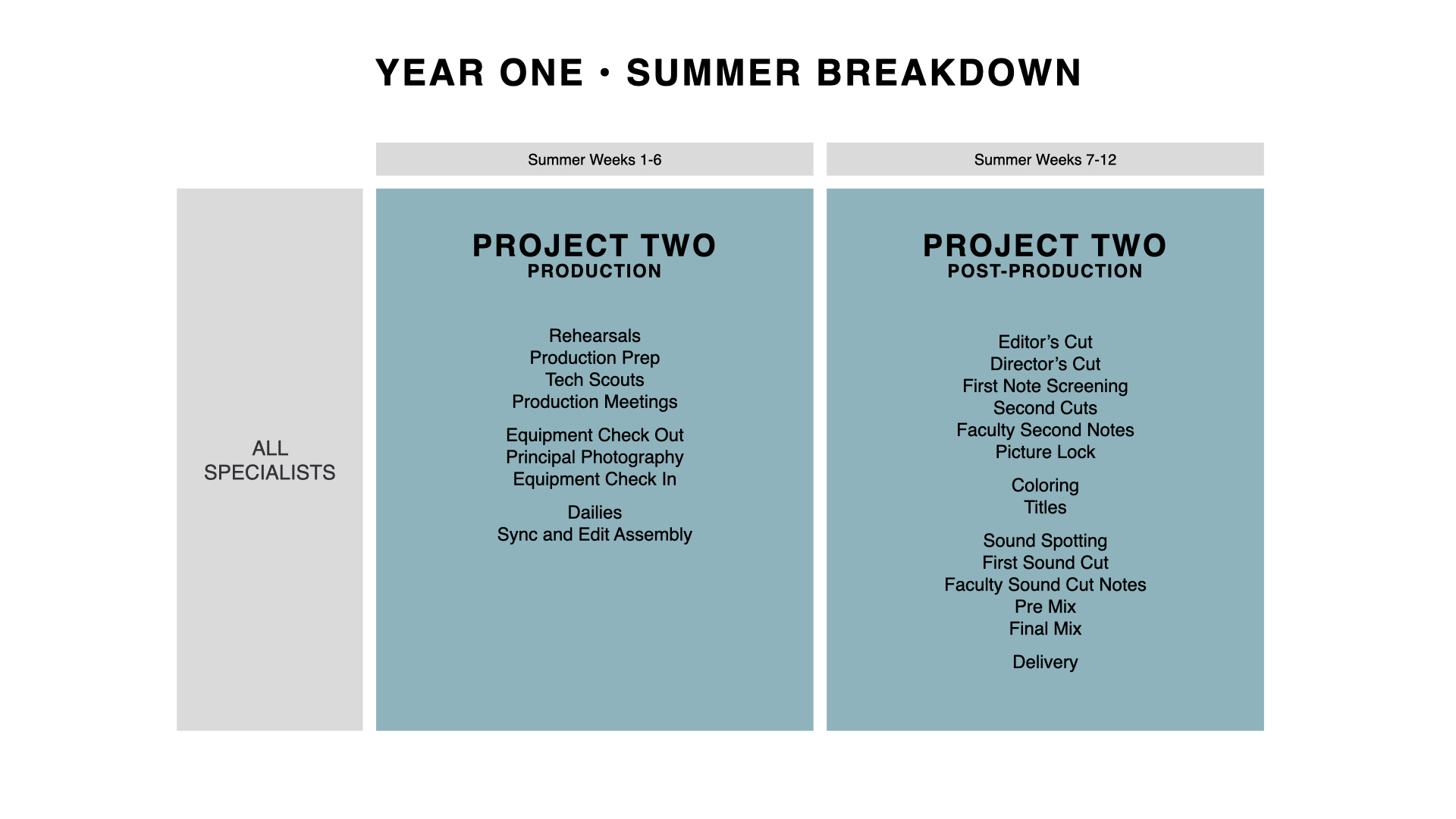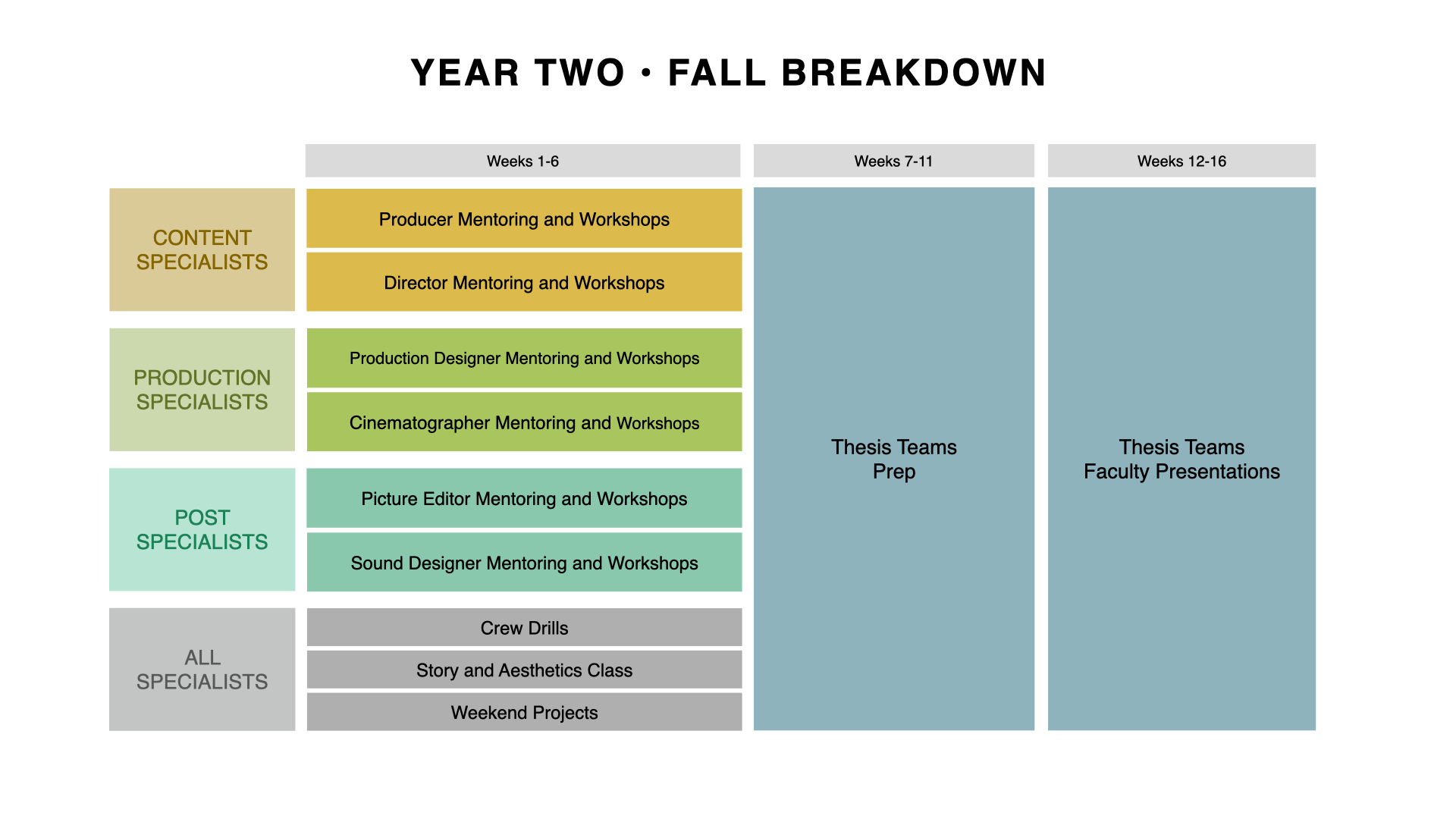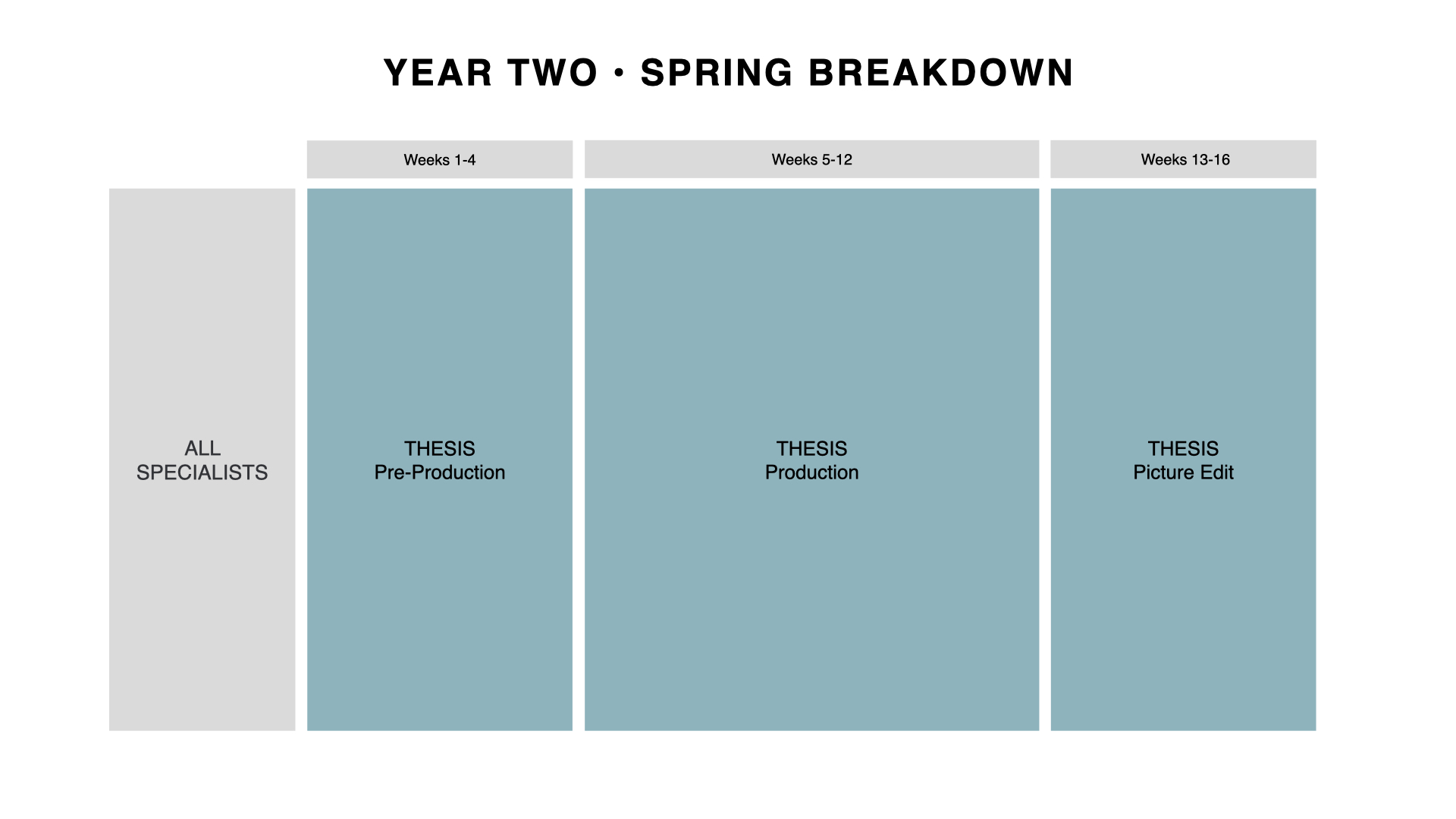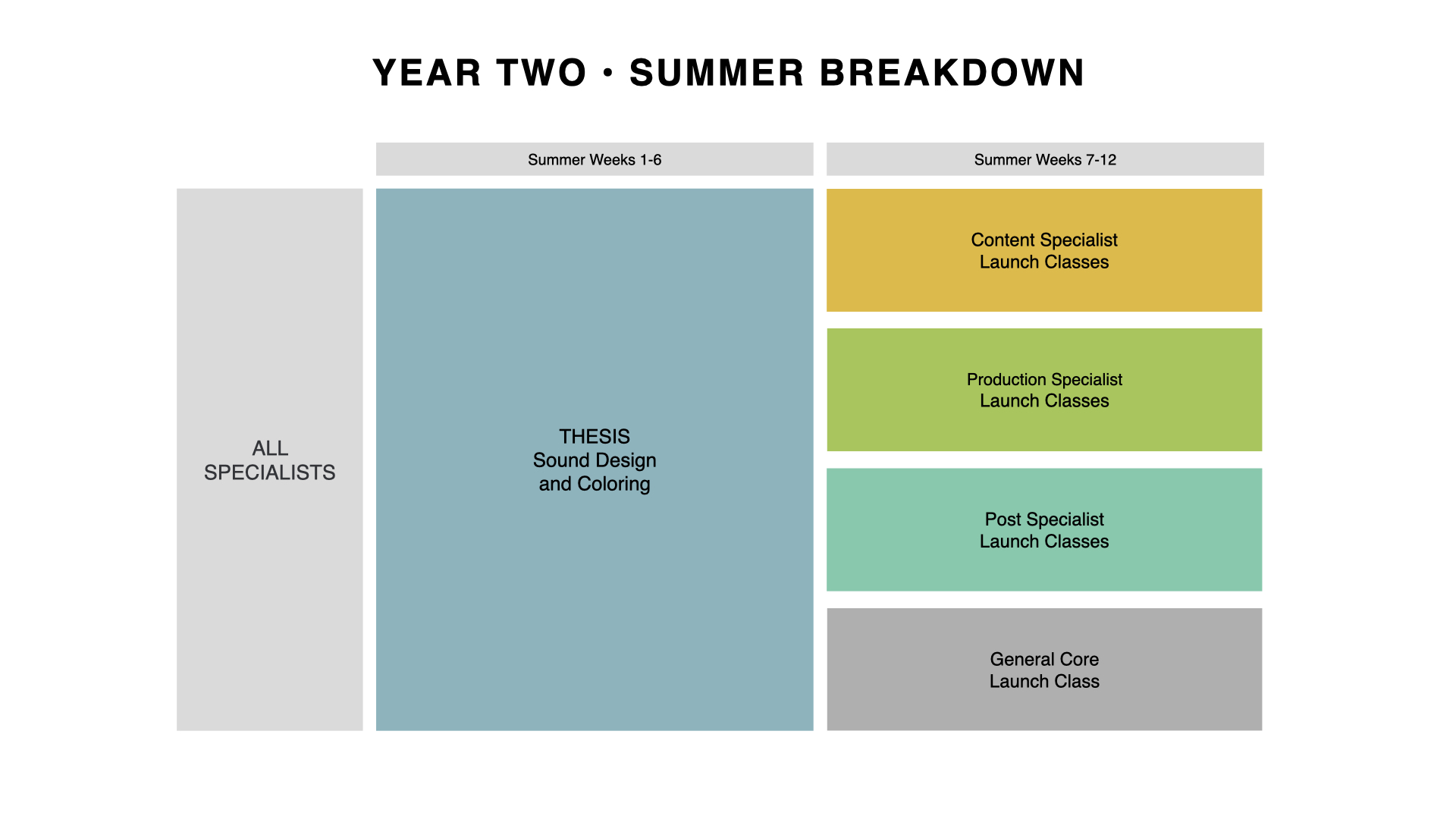Production
Master the Art of Visual Storytelling
The Master of Fine Arts in Production program catapults you into high-caliber live-action filmmaking. From the start, you’ll be working with master faculty mentors, professional-grade equipment and facilities, and a level playing field of production resources (including production costs) and you’ll be immersed in an intensely collaborative learning experience that you’ll carry with you throughout the rest of your career.
The MFA Production program at FSU offers a professional conservatory experience, which allows each student to concentrate in a specialized area of study while also garnering a well-rounded education in essential production skills. This allows both a 360-degree understanding of motion picture production and a deepened study in a specific area of filmmaking. Over the course of a 90-hour lockstep program spanning six consecutive semesters, you’ll master the process of production through a hands-on curriculum that trains students in broad production skills while also allowing for a narrowing track of specialized study in a declared area of focus.
Students enroll in an area of study in one of the following specialized tracks:
- Producing
- Directing
- Production Design
- Cinematography
- Picture Editing
- Sound Design
With a five-to-one student-to-faculty ratio, you’ll work intimately with respected resident and visiting filmmakers, receiving individualized mentorship from dedicated experts over a series of projects that culminate in a professional, exhibition-quality thesis film.
Students emerge from the two-year conservatory with the skills to tackle their ultimate area of interest, while also being job-ready for a wide variety of pre-production, production, and post-production opportunities, giving our alumni a 92-96% chance of employment within the first year after graduation.
First Semester (Fall) – Boot Camp
In an intense and immersive practicum semester, all students (regardless of specialization) work together to get a 360-degree working knowledge of motion picture production. No matter what aspect of filmmaking you are studying, if you can empathize with your collaborators and physically understand the mechanics of production, you will enjoy richer creative expression as a renaissance artist. For example, the director who understands set protocols and the time/effort it takes to execute any given shot has a better chance of actually achieving their vision than the director who walks onto set with a physically inexecutable plan.
To deliver this foundational experience and build truly collaborative bonds within teams, all students take the following leadership courses and perform their respective roles on a first-semester film:
- Producing
- Writing
- Directing
- Cinematography
- Production Design
- Picture Editing
- Sound Design
In addition to these courses, all students also complete an intensive series of workshops which train students in the basic union operations of production crews. Students learn and rotate through the following crew jobs:
- 1st Assistant Director
- 2nd Assistant Director
- Script Supervisor
- 1st Assistant Camera
- 2nd Assistant Camera
- Chief Lighting Technician
- Assistant Chief Lighting Technician
- Key Grip
- Dolly Grip
- 1st Grip
- Sound Mixer
- Boom Operator
- Assistant Editor
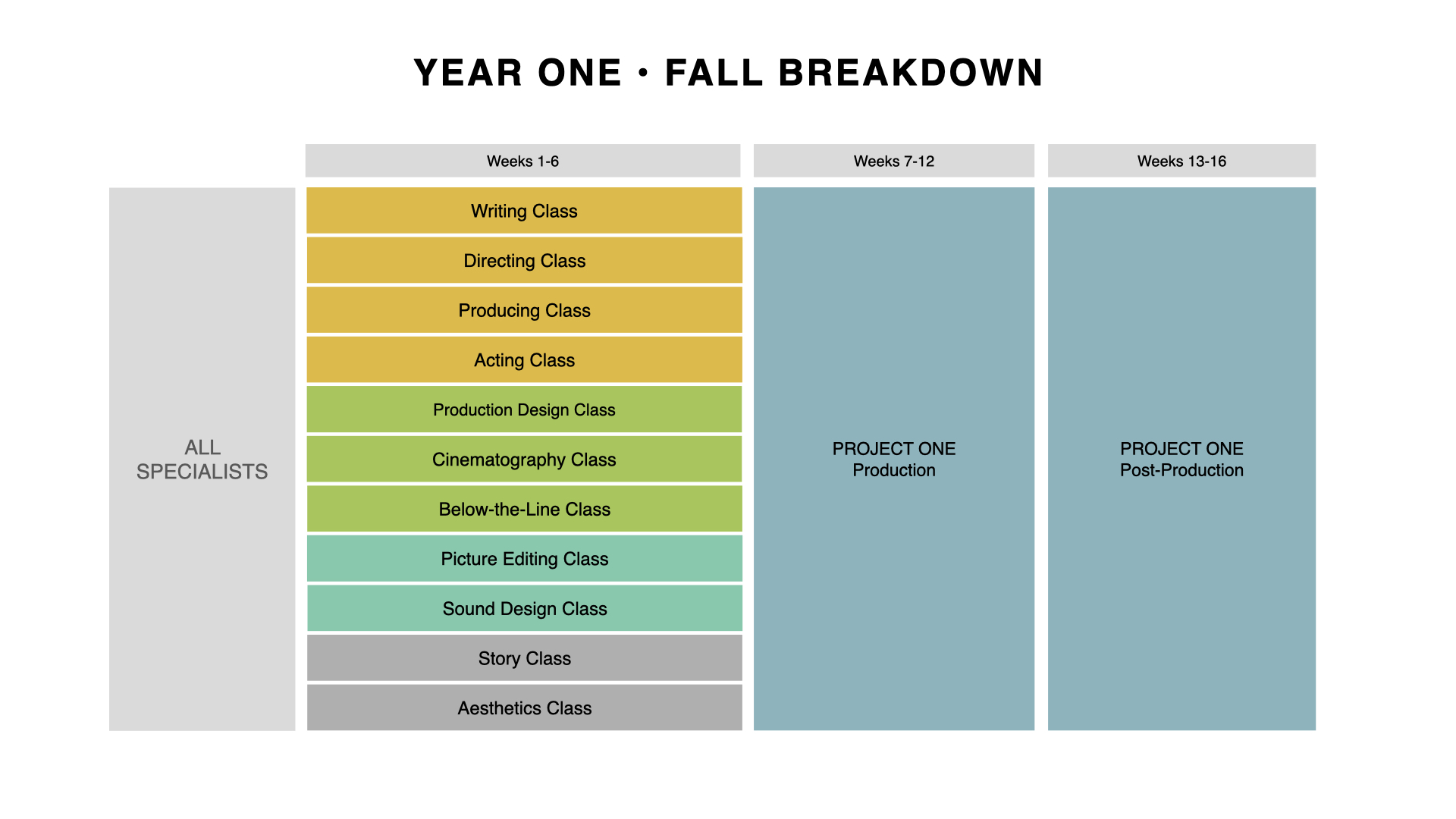
Second and Third Semesters (Spring/Summer)
After mastering the foundational principles of film production, students begin to narrow their focus into their areas of specialization, with coursework in one of three spheres of leadership:
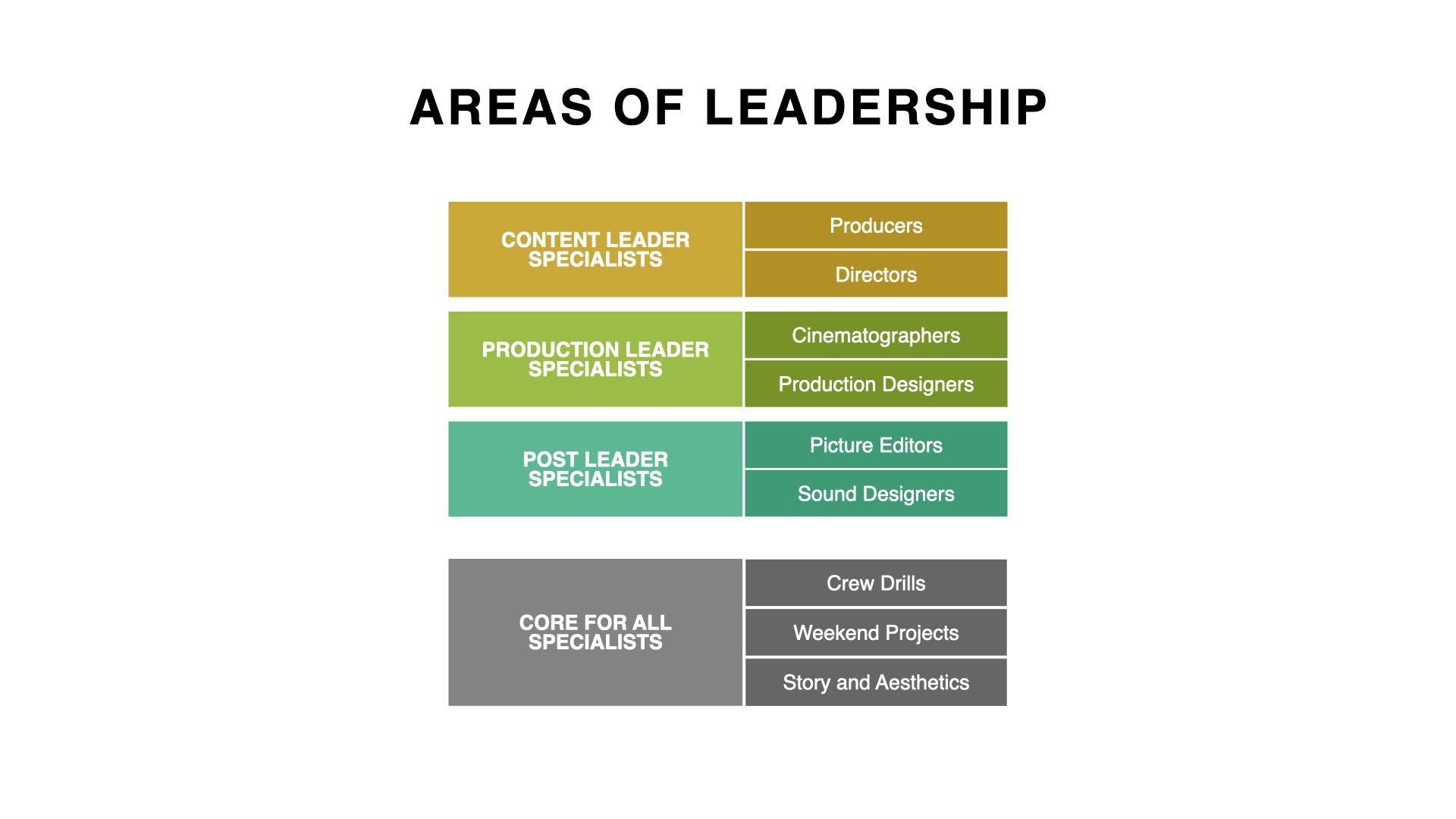 In addition to the courses and workshops in their specific leadership area, all students take a core set of classes that focus on story iteration and crewing.
In addition to the courses and workshops in their specific leadership area, all students take a core set of classes that focus on story iteration and crewing.
All students take a core Story and Aesthetics course wherein, after each week’s lecture, specialists work together on weekend projects. These are short films that test the team’s ability to master specific cinematic, narrative techniques.
To keep all students production-ready and grounded in technique, students participate in weekly “crew drills.” During these drills, students rotate through the various on-set positions to continue to hone a comprehensive range of production skills. These production skills are further developed during the spring semester with all first-year students filling crew positions on the thesis films being produced by the class ahead of them — which allows for both peer-to-peer learning and the formation of close ties between students across year-groups.
Over the summer semester, students make their second major film projects. Each student is afforded the opportunity to apply the skills they’ve been developing in their respective leadership area, while also supporting other students’ projects in a variety of crew positions.
Fourth Semester (Fall) – Thesis Prep
In the second-year fall semester, students concentrate in their specific area of specialization under the tutelage of a faculty mentor. In addition, students continue their core story/aesthetics class, along with advanced crew drills.
Working in teams, students collaborate in their leadership and specialist roles on the development of their thesis work. They also crew up all the positions of the thesis films that are designated for the second-year students. A rigorous development process culminates at the end of the semester with faculty-led preps for each thesis project, wherein the teams present all the elements that will go into the production of their films.
Fifth Semester (Spring) – Thesis Production
In the second-year spring semester, all teams finalize shooting plans and prepare for production. Following four weeks of general pre-production at the start of the semester, each thesis film is allocated periods of time for final preparations and principal photography, and each thesis crew is comprised of both second-year leaders and first-year support teams.
After all principal photography is wrapped, students move onto picture editing their thesis projects during the final four weeks of the semester.
Sixth Semester (Summer) – Thesis Post-Production and Launch Courses
In the final semester, students spend the first half of summer completing the sound design and color grading of their thesis projects, adding that final polish to wow audiences on the festival and award circuit.
During the second half of summer, students take a set of “launch classes” to prepare them for the next step on their journey as professional filmmakers and the future leaders in our industry.
Support from the college continues after graduation. The school promotes thesis projects in festivals long after students leave campus, and our Director of Alumni selects industry mentors to help guide graduates in their careers. Our alumni have earned a reputation in the industry as innovative, successful filmmakers, and have a 92-96% industry placement rate within one year of graduation.
